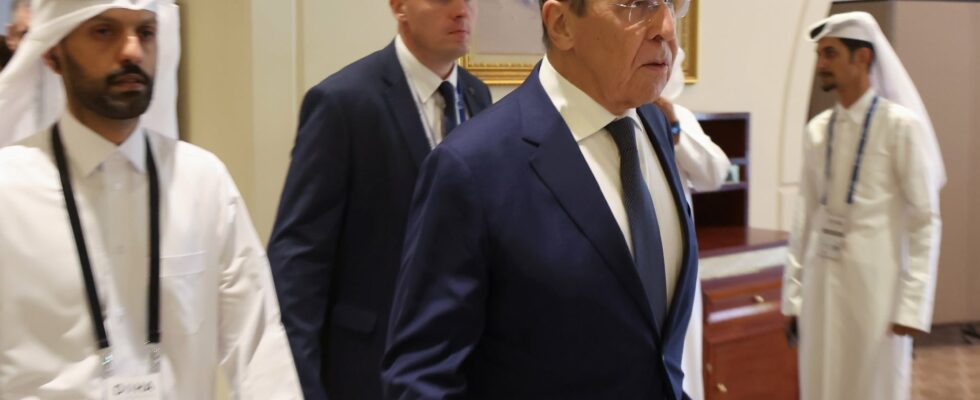History will record that the fate of Assad’s bloodthirsty regime was sealed in Qatar. Monday, the Syrian daily al-Jumuriya stated on X that the departure of Bashar al-Assad, driven from power in Syria on December 8, was negotiated during a meeting held in Doha between Russia, Iran and Turkey, in agreement with Egypt, Saudi Saudi Arabia, Iraq, Jordan and Qatar. “A Syrian source told Al-Jumhuriya that Assad’s fate was sealed on December 7 in Doha, during Astana meetings with Arab partners,” the outlet wrote. “During the meeting, Russia and Iran informed Ankara of their willingness to facilitate a political transition in Syria.” On December 8, Bashar al-Assad fled Syria and found refuge in Russia after the capture of Damascus by rebels from the Islamist group HTC.
This information would have been transmitted by an anonymous Syrian source, “which the media says it has corroborated with another person well informed about the discussions”, specifies for its part the Lebanese newspaper The Orient-The Day.
Negotiations on the sidelines of the Doha forum
According to the media, which includes information from saudi daily Asharq al-AwsatMoscow had made contact with Turkey and Iran before the capture of Damascus by the rebels, with the idea of stopping the offensive “in exchange for the ‘opening of a political dialogue'”. But Bashar al-Assad, according to the British daily The Guardianremained inflexible. “Russian representatives told the meeting of Assad’s inflexibility, refusing to accept reality or the need for dialogue,” the reporter writes. It was then that Russia and Iran “informed Ankara of their desire to facilitate a political transition in Syria”, according to the media Al Jumhuriya.
Seven conditions would then have been set, again according to the Syrian opposition daily, including “a smooth transition of power”, the protection of Russian military bases and “sacred Shiite sanctuaries”, such as the Sayeda Zaynab mosque near Damascus, Iran’s request.
“It is becoming increasingly clear that what has happened is a negotiated exit for Assad and a negotiated transition, agreed between the powers of Astana (Iran, Turkey, Russia Editor’s note) and the Arab states,” note on Emile Hokayem, director of regional security and senior fellow for Middle East security for the International Institute for Strategic Studies (IISS). “The question is what guarantees, if any, Russia and Iran have requested and received.”
Assad’s departure in exchange for an end to the fighting
On the other hand, the rebel Islamist group HTC, informed of the exchanges by Turkey, accepts in exchange for the departure of Bashar al-Assad from Syria, that the Prime Minister “makes a declaration of transfer of powers” and that the army signals to the soldiers the fall of the regime, according to Al Jumhuriya translated by The Orient-The Day. A Syrian opposition source told theReuters news agency that “the rebels had shown Turkey the details of their plan, after the failure of Ankara’s attempts to engage in dialogue with Assad.”
The press releases and press conferences following the Iran-Russia-Türkiye tripartite meetings do not mention these agreements. “Earlier on Saturday, Russian Foreign Minister Sergei Lavrov was asked on stage about the future of Syria,” says The Guardian. Questioned by a journalist from the Al-Jazeera channel, he ended up exclaiming, apparently irritated: “If you want me to say: ‘Yes, we lost in Syria, we are so desperate,’ if that’s what what you need, let’s continue.”
